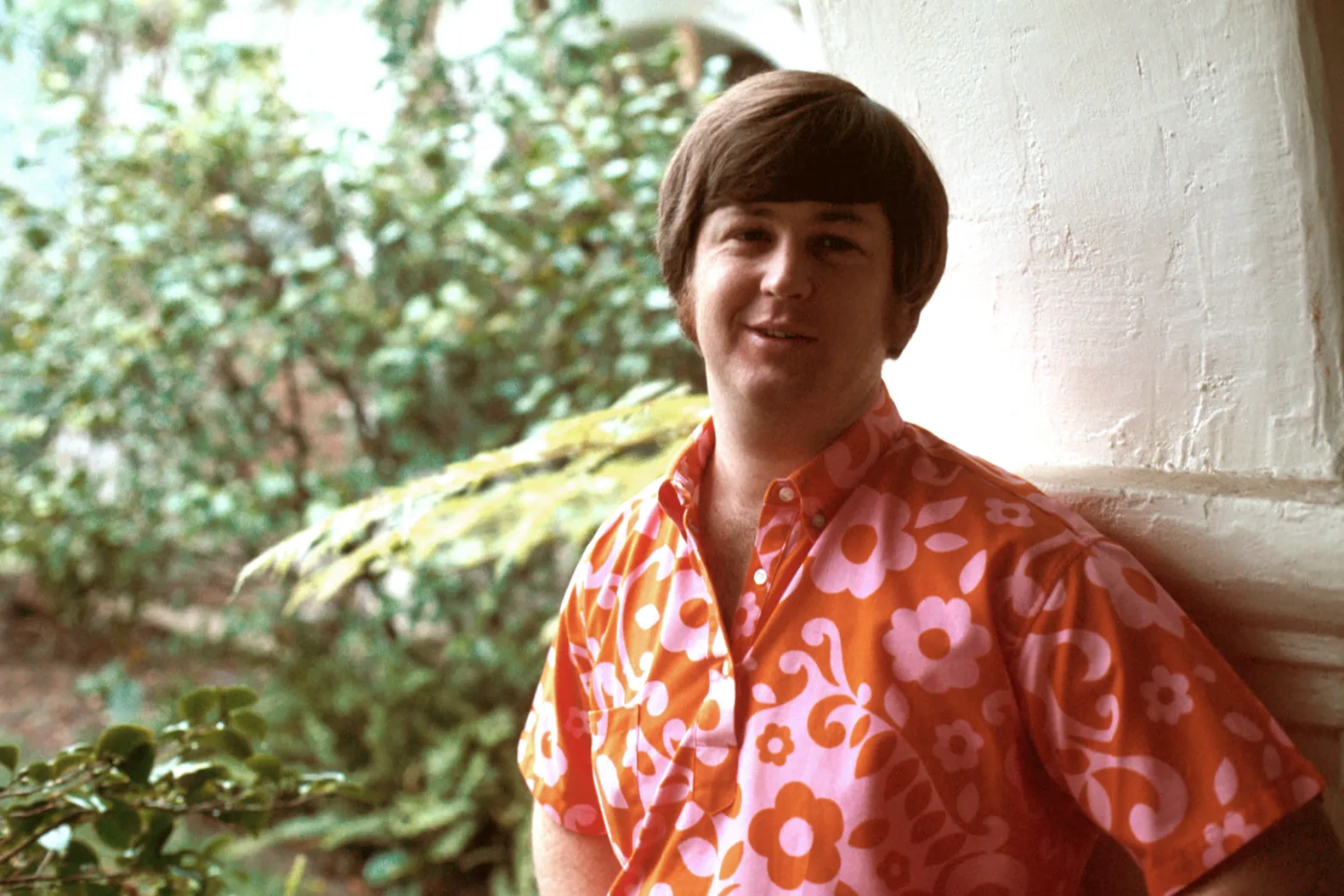The Eternal Harmony: A Tribute to Brian Wilson (1942-2025)
The music world dimmed on June 11, 2025, when Brian Wilson, the visionary architect of The Beach Boys’ sound and one of popular music’s most profound geniuses, passed away at 82. His family’s simple, heartbroken announcement—“We are at a loss for words”—echoed the inexpressible grief of millions who found solace, joy, and transcendence in his compositions . Wilson wasn’t merely a songwriter; he was a sonic alchemist who transformed adolescent dreams of sun, surf, and romance into aural landscapes of breathtaking emotional and technical complexity. As The Beach Boys poignantly declared: “Brian Wilson wasn’t just the heart of The Beach Boys—he was the soul of our sound” .
The California Dream Forged in Hawthorne
Born in 1942 in Hawthorne, California, Wilson co-founded The Beach Boys in 1961 with brothers Carl and Dennis, cousin Mike Love, and friend Al Jardine. What began as harmonized odes to surfboards and convertibles (“Surfin’ U.S.A.,” “Fun, Fun, Fun”) quickly revealed Brian’s unparalleled gift for melodic invention and studio innovation. He heard orchestras in his mind long before technology could easily replicate them, laboring obsessively—sometimes over 37 takes of a single vocal phrase—to translate his visions to tape . By the mid-1960s, he had penned dozens of Top 40 hits, crafting what Governor Gavin Newsom called “the California band’s… mystique and magic,” a sound synonymous with youthful optimism .
Pet Sounds: The Cathedral of Sound and “God Only Knows”
While countless hits defined the early ’60s, Wilson’s restless spirit sought deeper expression. The result was 1966’s Pet Sounds, an album that forever altered music’s trajectory. Recorded largely while the band toured, Brian collaborated with lyricist Tony Asher and the legendary Wrecking Crew session musicians to create what he called “a spiritual record”—a song cycle of vulnerability, longing, and orchestral grandeur . Bandmates initially balked at the departure from their “formula”; Mike Love reportedly urged, “Stop f—ing with the formula!” . Yet history vindicated Wilson: Paul McCartney hailed Pet Sounds as “the classic of the century,” crediting it as the catalyst for Sgt. Pepper’s Lonely Hearts Club Band . Leonard Bernstein simply declared Brian a genius .
At the emotional and technical apex of Pet Sounds stands “God Only Knows”—your cherished masterpiece and arguably Wilson’s magnum opus. Composed at just 23, this baroque-pop miracle defied every convention:
- Lyrical Daring: Its title broke a cultural taboo—mentioning “God” in pop music was considered radio poison in 1966. Asher recalled “lengthy conversations” with Brian fearing airplay bans . The opening line—“I may not always love you”—was another calculated risk, a deceptive twist that deepened the song’s emotional complexity .
- Harmonic Revolution: Wilson crafted a song that floats ethereally between keys (E and A major), avoiding root chords to create what he called “a sort of infinity spiral” . Musicologists note its “tonal plasticity” rivaled classical masters like Bach .
- Production Alchemy: Using ~20 musicians, Wilson layered French horns, accordions, sleigh bells, harpsichord, and even plastic orange juice cups into a tapestry both intimate and celestial . He entrusted the lead vocal to brother Carl, delivering what many consider Carl’s definitive performance .
- The Eternal Outro: The song’s closing vocal rounds—“God only knows what I’d be without you…”—fade into what writer Hanif Abdurraqib described as “a forever of praising the fact that you’ll never have to find out” . Paul McCartney confessed this section “reduces me to tears every time” .
Table: The Revolutionary Elements of “God Only Knows”
| Aspect | Innovation | Impact |
|---|---|---|
| Lyrics | First major pop song to mention “God” in title; ambiguous, vulnerable sentiment | Broke cultural taboos; added emotional depth beyond typical love songs |
| Vocals | Carl Wilson’s angelic lead; complex contrapuntal harmonies; round-like outro | Considered peak Beach Boys vocal performance; created timeless, haunting beauty |
| Instrumentation | 20+ musicians: French horn, harpsichord, strings, clarinets, found objects | Baroque-meets-pop texture; unprecedented richness in rock |
| Harmony/Key | Deliberate tonal ambiguity (E/A major); inverted chords; weak cadences | Dreamlike, weightless quality; influenced composers across genres |
The Price of Genius and Enduring Light
Wilson’s ascent was shadowed by inner turmoil. The abandoned Smile project (1967), intended as a “teenage symphony to God,” succumbed to his fragile mental health, drug use, and band tensions . Diagnosed with paranoid schizophrenia in 1984 and later dementia, he endured decades of auditory hallucinations and depression, once admitting, “I lost interest in writing songs… I was too concerned with getting drugs” . Yet his resilience was remarkable. With support from his late wife Melinda (d. 2024), he returned to touring and finally completed Smile in 2004 . His last gift was 2021’s At My Piano, solo instrumental reflections on his legacy .
The Eternal Chorus: Tributes from Hearts Touched by Harmony
As news of his passing spread, a global chorus rose in gratitude:
- Al Jardine, his lifelong friend and bandmate, envisioned him reunited with brothers Carl and Dennis: “Singing those beautiful harmonies again… Brian, I’ll really miss you — still I have the warmth of the sun” .
- John Stamos, who performed with The Beach Boys, shared: “He filled [my life] with color, with wonder… He heard things no one else could hear. He felt things deeper” .
- Daughter Carnie Wilson poured out her grief: “My Father was every fiber of my body… I love you Daddy….I miss you so much already” .
- Nancy Sinatra, who duetted with him, affirmed: “His cherished music will live forever as he travels through the Universe and beyond” .
- Paul McCartney’s enduring verdict on “God Only Knows” resonates anew: “The greatest song ever written” .
Love and Mercy: The Infinite Summer
Brian Wilson once revealed his creative secret: “When I tuned the world out, I was able to tune in a mysterious, God-given music. It was my gift” . In gifting that divine frequency to us—through the teenage symphonies, the pocket symphonies, the harmonies that still hang like coastal fog over our collective memory—he crafted not just songs, but sacred spaces of solace and exultation. Pet Sounds and its celestial heart, “God Only Knows,” remain his everlasting testament: a promise that loneliness is transient, beauty is eternal, and love—in all its fragile, harmonized glory—is the vibration that outlives us all. As the final round fades into silence, we hear only the echo of his own benediction: “Love & Mercy”—now, and forever, returned to him. Rest in harmony, Maestro.

